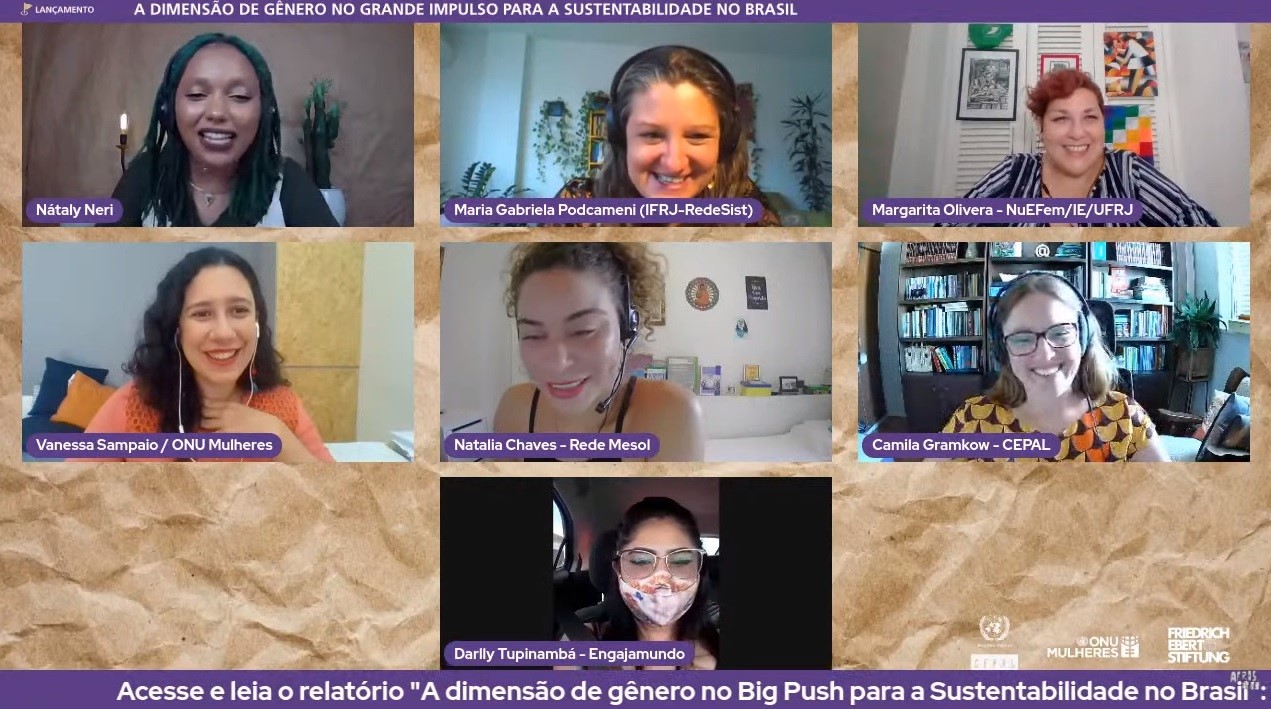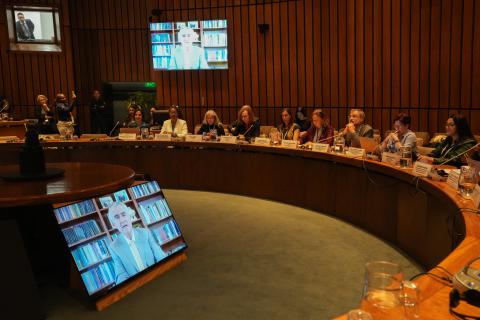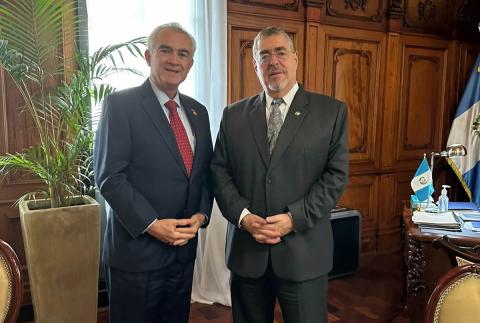News
On March 30, 2021, the ECLAC Office in Brazil, UN Women Brazil and the foundation Friedrich Ebert Stiftung (FES Brasil) held a live virtual event entitled “A dimensão de gênero e o Grande Impulso para a Sustentabilidade no Brasil.” Moderated by Nátaly Neri (a social scientist and YouTuber), the event featured the participation of Margarita Olivera (Professor at the Institute of Economics of the Federal University of Rio de Janeiro-UFRJ, and coordinator of the Hub of Studies and Research on Economics and Feminisms-NuEFem/IE/UFRJ), Maria Gabriela Podcameni (Professor at the Federal Institute of Rio de Janeiro-IFRJ and researcher for RedeSist/UFRJ), Darlly Tupinambá (a member of the Tupinambá People and National Articulator of Engajamundo), Rayanne Máximo (a member of the Baré People and Member of the Indigenous Youth Network), Natália Chaves (Co-founder of the Brazilian Network of Women in Solar Energy), Camila Gramkow (Economic Affairs Officer at ECLAC’s Office in Brazil), and Vanessa Sampaio (Economic Empowerment Manager at UN Women Brazil).
The virtual event, which has garnered more than 7,000 views, was held to launch the Portuguese-language report “A dimensão de gênero no Big Push para a Sustentabilidade no Brasil: as mulheres no contexto da transformação social e ecológica da economia brasileira,” which was produced by researchers Margarita Olivera and Maria Gabriela Podcameni, Maria Cecília Lustosa (Professor at Profinit and Researcher for RedeSist/UFRJ) and Letícia Graça (Researcher for NuEFem/IE/UFRJ), and was coordinated by Camila Gramkow.
The report analyzes the gender dimension in the context of transformative investments for equality and sustainability, as part of the Big Push for Sustainability approach. Based on evidence, subsidies are offered for the formulation of a recovery strategy with equality and sustainability that would promote, based on sustainable investments, employment and income-related opportunities for women, taken in all their diversity; and the improved availability and quality of care services, freeing up their time and contributing to their economic autonomy. An intersectionality perspective is adopted by taking into account the availability of information and data, the relevance of racial issues in this reality, and the diversity of women (black, indigenous, quilombolas, peripheral, etc.).
According to Carlos Mussi, Director of ECLAC’s Office in Brazil, it is possible to build a new future based on a Big Push for sustainability and gender equality. “It is necessary to forge new economic, fiscal and political compacts. We cannot have a recovery that increases poverty and inequality, that compounds the workload of women, or that worsens the climate emergency. We need a new generation of policies that have sustainability and equity at the center, creating conditions for sustainable investments to be made and at the pace needed for a transformative recovery with sustainability and equality,” he emphasized.
“This issue has not been exhausted in this document, it is necessary to design a debate and study agenda from a perspective of intersectionality of the human rights of women, in their distinct contexts and realities, in relation to the tackling of climate change,” the country representative of UN Women Brazil, Anastasia Divinskaya, explained.
According to the program director of the Friedrich Ebert foundation (FES Brasil), Waldeli Melleiro, extreme events like the pandemic and climate change are deepening existing racial and gender inequalities. “To change this unequal insertion and promote social transformation, policies and investments must be adopted with an explicit focus on women in different sectors: infrastructure, work, green jobs, health and the social organization of care work. Adopting gender mainstreaming is urgent and critical, and from the viewpoint of the Friedrich Ebert foundation, democracy is only possible if there is gender justice,” she stressed.



